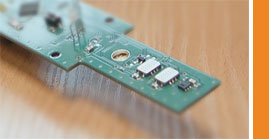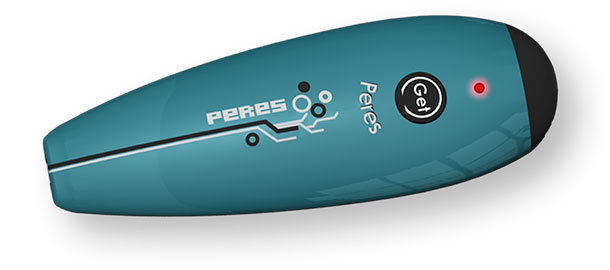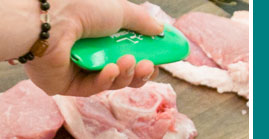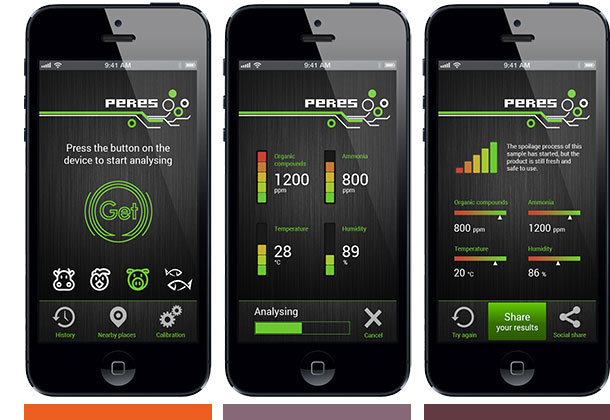Peres Meat Sniffer
What is Peres?
PERES is the world’s first portable “electronic nose” – a unique and innovative device and mobile application which enables users to determine the quality and freshness of:
It is designed to detect:
- whether a product is fresh
- whether it is hazardous to health
- whether there is a risk of food poisoning
- whether it has been left unrefrigerated for some time
How do you use Peres?
PERES sensors detect volumes of VOCs in the sample, and readings are then adjusted taking into account temperature and humidity. These data are used to calculate findings and results.
Users control PERES, start the sampling process, analyse the results of readings and share their experiences with friends just by interfacing with a user-friendly environment on their phone or tablet.
How does Peres work?
 |
The device has four types of sensors: temperature, humidity, amonia and volatile organic compounds sensors.
|
Who should use Peres?
- Everyone who stores, supplies, or uses fresh meat.
- Great for home use where we have a bad habit of pushing the limits of food safety –
- defrosting by leaving an item out all day,
- leaving items in the fridge for extended periods,
- buying meat that is “on special” and not using it immediately
- Great for commercial use where your reputation (and peoples’ lives) depend upon the freshness of the meat
- testing when receiving supplies
- routinely testing meat kept in fridges
- testing meat that is about to be prepared on remote site
Does Peres allow commercial kitchens to “bend” the food laws?
Can the Peres be used to “bend” or “override” the existing food laws if it says that the meat is still fresh?
Absolutely not.
Within the hospitality industry the Peres Meat Sniffer should be used to validate the current procedures, and ask a confirmation that every thing is OK.
If there is a break down in operations that exposes meat to higher temperatures for excessive periods of time then your procedure should be to automatically dispose of the items in accordance with regulations. The Peres is not intended as a way to avoid compliance with government regulations.






